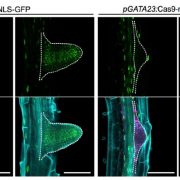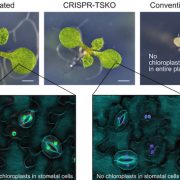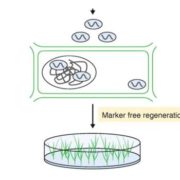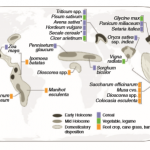Review: A CRISPR way for accelerating improvement of food crops (Nature Food)
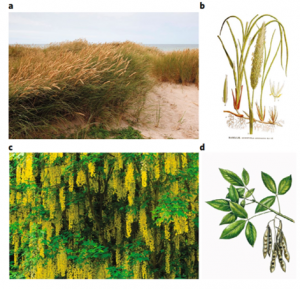 CRISPR technologyhas become indispensable for basic plant biology research and has the potential to profoundly impact future agriculture. Zhang et al. provide an overview of CRISPR technology and discuss how this technology will revolutionize future crop breeding. CRISPR technology can not only introduce DNA breaks for gene knockout, but it can also precisely edit bases. Recently, a ground-breaking genome editor “prime editing” enabled targeted insertions, deletions, and all types of point mutations, and has been successfully applied in rice and wheat. Looking forward, advanced genome editing technologies will enable plant synthetic biology, which “introduces biological components and systems that do not already exist in plants”. These can be realized in multiple ways: 1) introducing multiple edits simultaneously to “stack” beneficial traits, 2) CRISPR-mediated saturation mutagenesis to direct the evolution of new proteins and regulatory elements, and 3) accelerating crop domestication by cheap, fast, and precise gene-editing of wild crops. Finally, the authors touch upon the regulatory aspects of gene-edited crops in different countries, stressing the importance of constructing worldwide regulatory frameworks and spreading reliable information about CRISPR technology to the public to enable innovation in agriculture. (Summary by Tatsuya Nobori) Nature Food 10.1038/s43016-020-0051-8
CRISPR technologyhas become indispensable for basic plant biology research and has the potential to profoundly impact future agriculture. Zhang et al. provide an overview of CRISPR technology and discuss how this technology will revolutionize future crop breeding. CRISPR technology can not only introduce DNA breaks for gene knockout, but it can also precisely edit bases. Recently, a ground-breaking genome editor “prime editing” enabled targeted insertions, deletions, and all types of point mutations, and has been successfully applied in rice and wheat. Looking forward, advanced genome editing technologies will enable plant synthetic biology, which “introduces biological components and systems that do not already exist in plants”. These can be realized in multiple ways: 1) introducing multiple edits simultaneously to “stack” beneficial traits, 2) CRISPR-mediated saturation mutagenesis to direct the evolution of new proteins and regulatory elements, and 3) accelerating crop domestication by cheap, fast, and precise gene-editing of wild crops. Finally, the authors touch upon the regulatory aspects of gene-edited crops in different countries, stressing the importance of constructing worldwide regulatory frameworks and spreading reliable information about CRISPR technology to the public to enable innovation in agriculture. (Summary by Tatsuya Nobori) Nature Food 10.1038/s43016-020-0051-8


